From Global to Local: When you feel your true self

Pat Hynes
| Published: 11-03-2024 5:01 PM |
On a blackboard in a 1930s log cabin at Jacob’s Pillow dance theater in the hills of western Massachusetts, I came upon an intriguing question written in chalk: When do you feel your true self? Visitors had left responses on the blackboard, some thoughtful, some light, such as: “When I am with my friends eating ice cream.”
I then decided to explore the question with friends, including a retired teacher; a writer, a truckdriver, a community activist, a certified nursing assistant (CNA), and a poet. And here is what they had to say.
“Walking in nature, I feel at peace. I can hear that still small voice inside me, which we all have, that is often obscured in the hustle and bustle of daily life.”
…...
“Because I have been living with Stage 4 cancer for over 6 years, I am focusing each day on becoming more deeply my true self. I spent my first 17 years dodging the daily penalties of being myself. I learned by the age of 4 that in order to survive (at least psychically), I needed to follow my mother’s rules to the ‘t.’
“Those rules made me small. So, in these remaining days, I am consciously asking myself how I want to interact with the world around me. I feel my true self when I communicate honestly — my values, passions, fears, joys, and decisions — not in a way to be contentious, but simply to let others know who I am — the deep, wide person I have always been.”
…...
“When I am behind the wheel of the truck [an 18-wheeler]. I’m happy with what I do and it gives me purpose, more so since my wife died. It helped me get through.”
Article continues after...
Yesterday's Most Read Articles
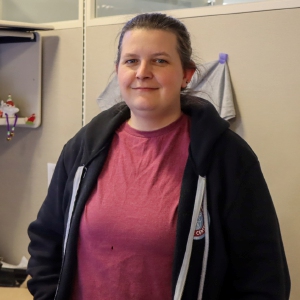 Sheila Gilmour resigns from Greenfield City Council
Sheila Gilmour resigns from Greenfield City Council
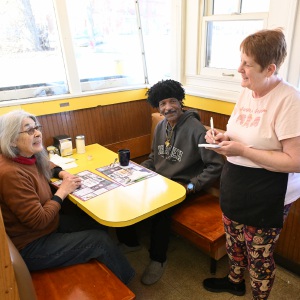 As Shady Glen Diner awaits buyer, current owner extends hours, shores up staffing
As Shady Glen Diner awaits buyer, current owner extends hours, shores up staffing
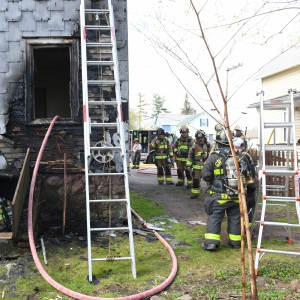 Four-family house on Greenfield’s Devens Street damaged in blaze
Four-family house on Greenfield’s Devens Street damaged in blaze
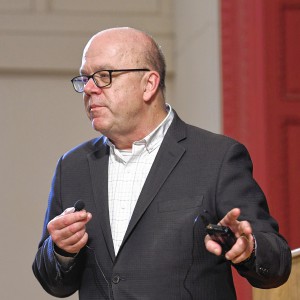 U.S. Rep. Jim McGovern announces death of daughter, Molly, who battled cancer
U.S. Rep. Jim McGovern announces death of daughter, Molly, who battled cancer
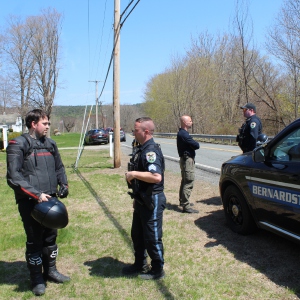 Man suffers minor injuries in Bernardston motorcycle crash
Man suffers minor injuries in Bernardston motorcycle crash
 Real Estate Transactions: April 25, 2025
Real Estate Transactions: April 25, 2025
…...
“When I am walking in nature, stopping every few moments to gaze at a life form that astonishes me with its beauty — then I feel my truest self. I am one of those life forms (not the chief one) and an admirer and comrade of all the others.
When I set aside my own concerns of the moment and listen with full attention and compassion to another and with my listening provide the condition for her to find a portion of her truth and bring that truth out into the world, I feel my truest self. The world acts as if speaking is the big deal. It is a big deal but give listening its due: Deep listening enables speech. And as for compassion: There is a kind of knowledge that cannot form inside someone, cannot exist, without the presence of compassion.”
…...
“‘Thich ‘Nhat Hanh wrote, “‘You are not an isolated being. You are made of ancestors … There is no separate self. We are a current. We are a stream. We are a continuation.’” I was born in the babble of Stonecoal Creek, lapping the banks of Besoco, West Virginia. I am a wave in the mountain streams of my ancestors. We are one tributary, each generation flowing into the next.
My true self appears as a turtle, bravely and quietly revealing its sunbaked head in tender moments, in which the interconnectedness of life, and the spirits of my ancestors, and the shared trust of a vulnerable heart are all felt, or in the peaceful ambiance of a solitary occasion, before retreating to its hard shell.”
……
“When I am hiking in nature where I feel the true beauty of life.”
Pondering the question when am I my true self also led me back to some of the most authentic human statements/actions I have encountered over the years of writing on war and peace: those of veterans who spoke searingly against the immorality of the wars in which they fought. Tens of thousands of U.S. recruits and soldiers have declared themselves conscientious objectors to war, have gone AWOL or refused to re-deploy, risked prison, rejected their war medals in a public act of conscience. Their voices, like that of poet Namaya, have a deeply moral tenor:
“I burn with the shame
Of our wars!
Our shame should burn as bright
as the phosphorous bombs
that we dropped in Vietnam …”
This past August three 18-year-old Israeli conscientious objectors “declared their refusal to enlist” in required military service. Their reasons rise from the depths of their true, ethical selves.
YuvalMoav: “If you ask me why I refuse today, the answer is, ultimately, because of refusing to participate in genocide. I’ve been met with violence [for my decision]; but I will keep going. The war has only strengthened my decision.”
Oryan Mueller: “Refusal is like holding up a mirror to Israeli society, first of all to show that it is possible to resist the militaristic death machine and the cycle of bloodshed. We don’t have to take part in it.”
Itamar Greenberg: “After growing up in an ultra-Orthodox home … I left religion and … this directed me to justice … I think the decision to refuse is a direct result of that.”
May they inspire their generation everywhere.
Pat Hynes, of Montague, is a board member of the Traprock Center for Peace and Justice.






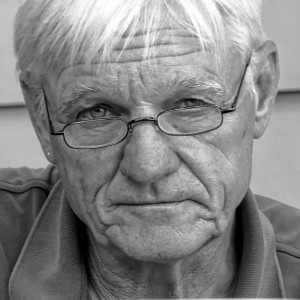 The World Keeps Turning: Trump’s royal ‘reign of fear’
The World Keeps Turning: Trump’s royal ‘reign of fear’ Thomas Wolslegel: Threats to library funding should not be tolerated
Thomas Wolslegel: Threats to library funding should not be tolerated Jon Oltman: Tim Hilchey for Deerfield
Jon Oltman: Tim Hilchey for Deerfield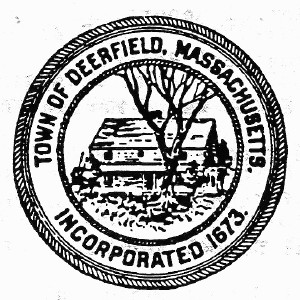 Shirley Majewski: Wolfram stands behind well-being of Deerfield residents
Shirley Majewski: Wolfram stands behind well-being of Deerfield residents
